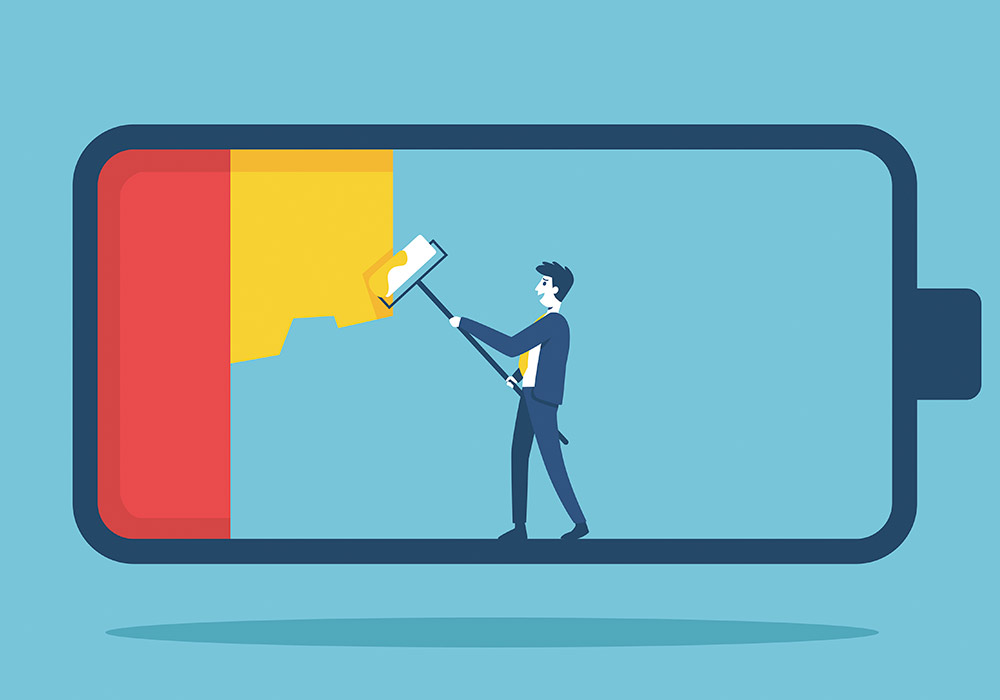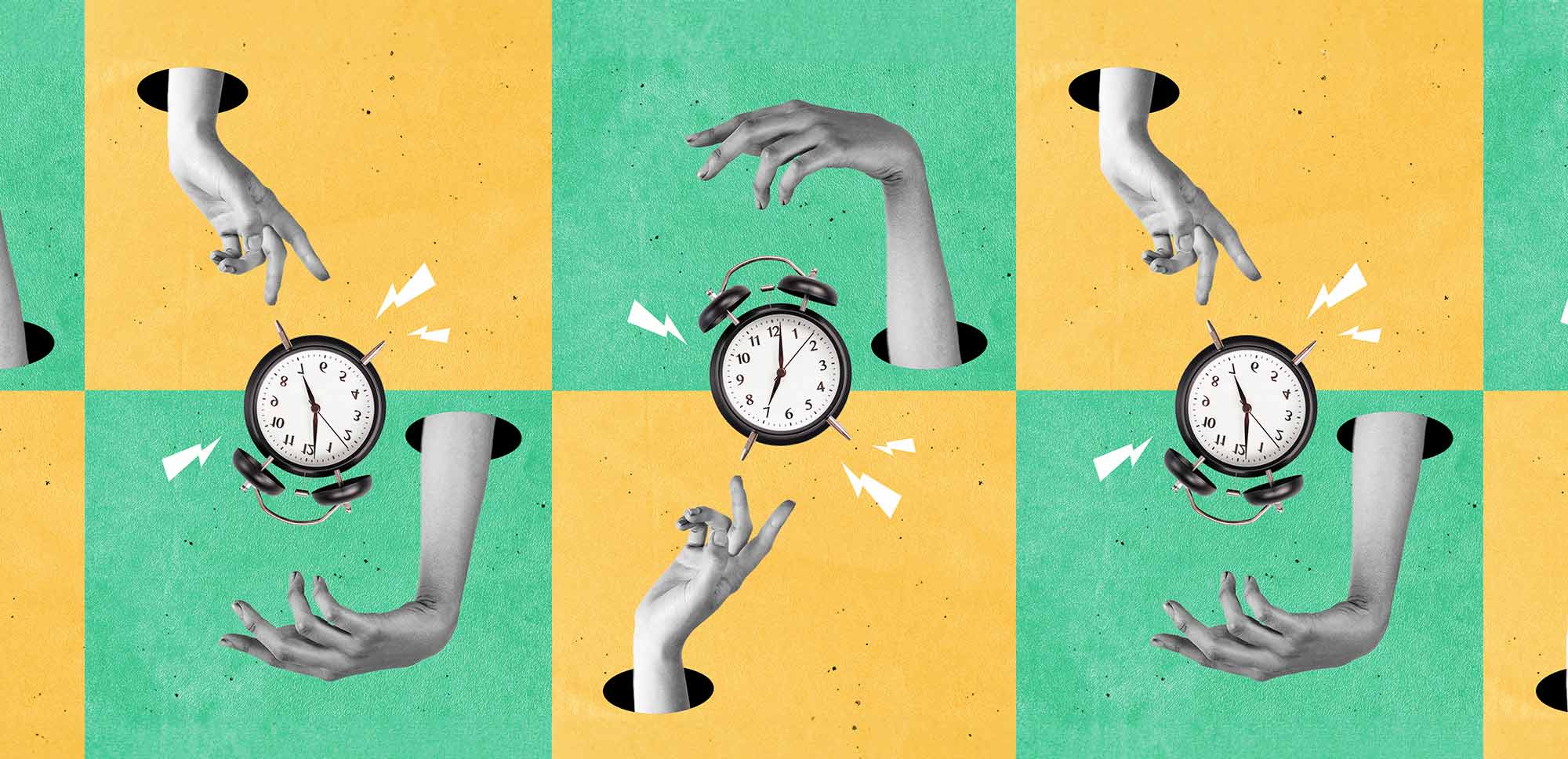The more work we have, the more time we spend on it. But the more tired we get, the less we produce. This is known as the “recovery paradox“. Just when we most need to stop, take a break and allow our bodies and minds to recover from the constant stress of work, it’s precisely when we seem least willing to do so.
Why does this happen, and how can we challenge ourselves to break this endless loop of fatigue? Four experts in the field dive into this paradox, discussing its complexities and proposing five research-backed strategies to help us manage work overload.
What will I read about in this article?
You don`t have to work more to manage work overload, you have to rest better
In our daily lives, we clearly understand the need to rest, for example, when we’re on a long drive and are overcome by fatigue. We know that not doing so can have serious consequences, not only for us but also for others.
The same is true for professionals such as doctors, pilots or athletes. These people quickly learn that physical and mental recovery is crucial to achieve and maintain high performance under pressure. Not only does it occur when people feel exhausted, but it is an essential part of doing their job. In the case of pilots, they’re required to recover for defined periods of time between flights in order to maintain safety standards.
It would be important to extrapolate this strategy to other professions when people are overworked.

Stopping and resting helps us to recover effectively from stress or periods of high performance where we‘ve given 100% of ourselves. Breaks are an opportunity to recharge energy and maintain the resources necessary to take care of our physical, mental and emotional health.
Work overload versus the paradox of recovery
However, managing work overload is not always as intuitive as you might think. This study has found that when we most need to rest and recover – at times of extreme exhaustion – we’re least likely to take action to do so. This is known as the recovery paradox.
When work piles up and there are not enough hours in the day to get everything done: reports, meetings, calls, proposals, sales…, we start to scrape minutes from wherever we can. Instead of stopping for an hour for lunch, we devour a sandwich or any fast food in front of the screen. We miss our paddle tennis class, yoga or our visit to the gym to sit in front of the screen for longer. We even sacrifice hours of sleep to get up earlier and get ahead on a task.
“When we most need rest and recuperation – in times of extreme exhaustion – we are least likely to take steps to do so”.
What do we achieve by doing this? We accumulate exhaustion and diminish our performance. We work harder, but we work worse.
To overcome this paradox, experts recommend designing a custom-made recovery plan tailored to your preferences and needs. University of Lausanne (Switzerland) professors Alyson Meister, Nele Dael and Franciska Krings and University of Hong Kong HKU Business School MBA Director Bonnie Hayden Cheng point out 5 ways to make recovery work based on industry and research-based knowledge:
Disconnect to reconnect
Yes, it’s a hackneyed phrase, but it’s true. You get home, your mind is still working, going over details and worrying about deadlines. Instead of relaxing, you find yourself in a constant spiral of work overload. This is where the importance of mentally disconnecting from work comes in.
Spending time each day on an activity that’s not related to your work can be a way to avoid that temptation: spending an hour on nature photography, cooking a new recipe or simply reading a fascinating book. These shifts in focus allow the mind to free itself from work-related stress, recovering and recharging for the day ahead.
Micropauses: Small Breaths, Big Results
Studies indicate that micro-breaks – short breaks of about 10 minutes during the working day – can be effective in mitigating everyday stress and work overload.
Activities such as meditation, going out for a coffee or sharing an informal chat with a colleague can boost motivation and concentration, and keep energy levels high throughout the day.
Pleasure or pressure? When leisure becomes a burden?
The academics make an important point: what happens when our relaxation time is filled with activities that we have not chosen? And worse: activities we don’t enjoy?
Many people find themselves spending their free time doing tasks they don’t enjoy simply because they have not stopped to discern what would really fulfil their potential or because they’re accompanying someone else who has chosen to do it.
Not being able to choose what we do to unwind and rest can sometimes do more harm than good. For example, one study showed that those who wanted to share their lunch break with other colleagues to chat experienced a decrease in stress when they did so. However, the opposite was true for those who enjoyed socialising less and felt “forced” to spend their break this way.
Moving and learning to alleviate work overload
While it may seem tempting to relax in front of the TV or enjoy other simple and comfortable activities, experts point out that more dynamic activities may be better for managing work overload.

If the gym or team sports are not an option, a hike in nature may be.
Of course, recovery goes beyond physical exercise. Getting involved in activities that challenge you or allow you to learn new skills can be highly beneficial. From learning a new language, to honing your violin skills, to volunteering your time. These types of experiences allow you to develop new talents and recharge those depleted energies that ultimately benefit your work, giving a productive and original twist to the recovery process.
The positive impact of vegetation on recovery
A fundamental and underestimated element of recovery is the surrounding environment. And in this, vegetation plays an important role. Research by an interdisciplinary team at Cornell found that a 10-minute walk in a natural setting can help college students feel happier and lessen the effects of physical and mental stress.
In addition, plants are a great addition to any workspace. And not just for their aesthetic value. Research has shown that exposure to plant life can increase memory, decrease anxiety levels and improve mood. They can also increase productivity and creativity: it’s estimated that people surrounded by plants and other natural elements are 15% more creative than those without.
In conclusion, work overload is a challenge many professionals face today, but there are effective ways to manage it. Rest and disconnection are fundamental to maintaining a healthy work-life balance. It’s essential to find time for activities that we enjoy and allow us to disconnect from work. Micro-breaks during the working day can also be very beneficial in reducing stress and increasing concentration. Finally, we shouldn’t underestimate the importance of the environment in our recovery; even short walks in nature can have a significant impact on our well-being.
Sources:


